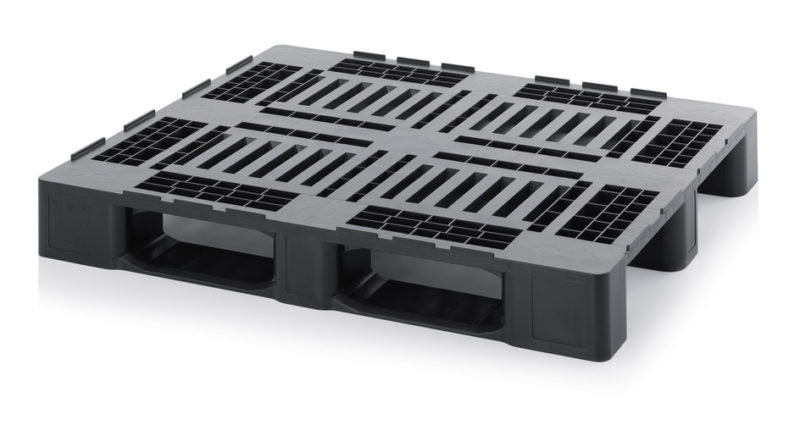Why your company needs plastic pallets
21 Dec 2017
Plastic pallets are an innovation that has brought many benefits to the process of shipping goods safely and effectively. The most common shipping pallet was once made of wood, and it was a standard unit of packaging that took up a certain amount of space and could be used for calculating the amount of space needed for storage. However, the plastic pallet industry has boomed as the many advantages of using plastic pallets have become widely recognised.

Easy to Clean and Hygienic
Pallets made of plastic are extremely easy to clean and sanitise, which is an advantage for shipping items such as food, beverages or medical supplies, where hygiene is vitally important. The pharmaceutical industry relies heavily on the plastic variety of pallet, and they are the best choice for shipping drums of liquid that must not spill. They are moisture-resistant and safe with a number of solvents and cleaning agents, and it is easy to remove any traces of grease, dirt, spillage, oils or chemicals from plastic pallets. They are very adaptable and can be made to rack, stack or nest.
Plastic is not an absorbent material like wood, so plastic pallets are stain-resistant and they also remain at the same weight over the span of their shipping life. Wooden pallets tend to absorb moisture and get heavier as they age. The plastic variety, however, can keep costs down by staying the same weight. They make it easier for shipping agents to do necessary calculations, as a standard load will weigh the same each time. As the plastic variety of pallet weighs less, using them requires less energy, and this has benefits for the environment. They also do not harbour mould or fungi or provide the kind of home that insects are drawn to.
Great Value
The plastic pallet industry has been boosted by the durability of its pallets. Unlike the wood variety, the plastic kind last a very long time and will not splinter or break, delivering a wonderful return on investment in certain industries. As they can be used again and again, they can be a more environmentally friendly choice than wooden pallets – the wooden ones get wet or are contaminated in some ways that can bring their lifespan to a quick close. And plastic can be recycled to make pallets too.
However, if you are sending goods off on a one-way trip abroad, wooden pallets may be a good option, as you may never seen these pallets again. Wood is also a sensible choice in general if all you need is a cheap disposable pallet. Wood can also be a better option for shipping goods that weight more than 1,500 pounds, as wooden pallets can take more weight.
But plastic pallets are still the top choice for providing the best framework to keep fragile goods in top condition and make sure they arrive in a pristine state. Another advantage is that they can be deployed on the shop floor to store and display goods too. Pallets made from plastic also catch fire at a higher temperature than wood, so there are safety advantages with plastic in potentially flammable situations. And if you are going to choose the pallets that are best suited to wet conditions, then plastic wins hands down.
